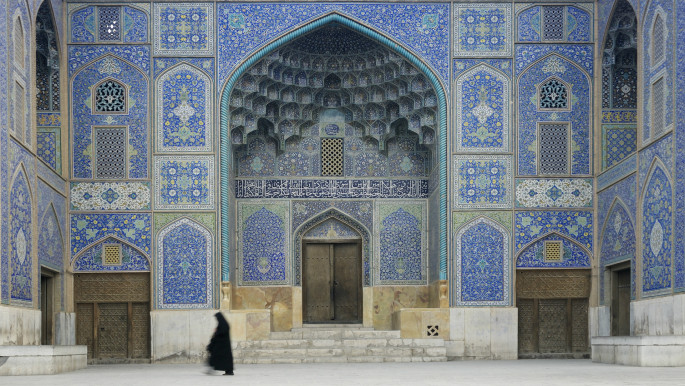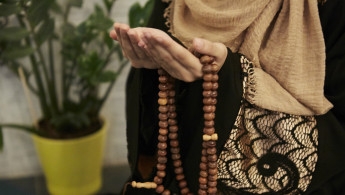Understanding those with mental health issues this Ramadan
The holy month provides intensive time for you to strengthen your bond with not only Allah, but yourself. It's time to test your endurance. You fast to remember the strains of those less fortunate, to see past your own selfish wants and seek clarity to remember the purpose of your existence.
We spend more time worshipping Allah, getting closer to Him and as a result, we feel more divine – detoxing our intestines and brains and bloodstreams, we leave the month cleansed inside and outside.
While the root of Ramadan can be found in our own personal struggle, the holy month can also be the most communal time of the year for a Muslim. But this is not the case for everyone – family and community is often something we take for granted.
Some Muslims are new reverts and are yet to find a community to share their iftars with. Some Muslims are estranged from their family, and some simply have dysfunctional families.
 |
I was raised in a house where Allah barely existed – but before I even knew its name, I knew depression existed |  |
I fall into the last category, and for that reason, the first time I ever participated in fasting, I did it alone. I was 16-years-old, and when the sun started to set I ripped into my store-bought samosas and downed juice frantically. I swigged and chewed and swallowed and rejoiced in the relief, until I realised I'd eaten far too quickly and was about to throw up.
The next day I learnt my lesson and nibbled slowly, chewing on a date and sipping on milk tentatively before attempting a real meal. As I sat there nibbling, I felt incredibly alone. Eating in isolation during Ramadan felt more sorrowful than eating alone on any other day, and at that moment I wished I had an Islamic community I was a part of.
I was raised in a house where Allah barely existed – but before I even knew its name, I knew depression existed. My mother suffered from mental health issues and so as soon as my conscious mind could grasp it, I understood that the brain could be a very dark, troublesome place. Studies have proven that you can inherit trauma and so by the time I was a teenager, my brain too had become a very dark place to live in.
My parents were born in a Muslim country, but they are Muslim only by identity – not practice. They came to England for a better life, and they didn't bring their culture or religion with them from their homelands.
Being born as an ethnic minority in a Western world with no knowledge of your cultural or religious background can lead to an identity crisis – a huge sense of self feels like it is missing.
I realised I stood apart from British-born Muslims who had pious parents and close families, Muslims who were surrounded by a community that they knew they belonged to. Their sense of faith and community lay in the very core of their being – the importance of their practice had been introduced to them in the first chapters of their lives. There were no doubts about what they should be believe. I envied the security they had in their faith and family.
 |
|
| Read also: Prozak Diaries: Psychiatry and generational memory in Iran |
I was 20-years-old when I was first prescribed the anti-depressant widely known as Prozac. Disclaimer: Everyone will have a different experience when it comes to antidepressants, and it is imperative you heed your own advice from a doctor.
Now: Prozac didn't work for me personally. The medicine made my pupils so dilated that my irises were hardly visible; the hazel turned to black, my fingers trembled unprovoked. I tossed and turned every five minutes throughout the night and I felt like a fish out of the water, flipping over and over in a helpless panic.
The depression was still there but I couldn't feel it anymore, because I was hazy. But it was there, like a dark shadow in the corner. My doctor told me to stick with it, and in my desperation to feel better, I did.
One spring day I sat in the garden with my mother, sipping a cup of tea as I watched the sun beam through the trees. It was a rare moment of calm – not just for the weather, but for my mother and I. Mid-conversation, she asked me why my hands were shaking. "It's an antidepressant I am taking," I finally decided to tell her. I hadn't told anyone at this point – I felt too ashamed, too weak for needing drugs to survive the world, too fearful for the judgement I knew would ensue.
"You don't seem depressed or anxious. You shouldn't take stuff like that you know, it's addictive," she replied, and that was that. I'd opened up, allowed myself to be vulnerable and I got what I knew I'd get, but hoped I wouldn't. Little understanding, a lot of judgement.
 |
Why would Allah give the mentally ill a burden unseen by the human eye, so hard to rid yourself of, and so hard for others to understand? |  |
That year, Ramadan came and Ramadan went, and I hardly managed to participate in the fasts. I didn't feel well enough mentally or physically to abstain from consumption. When you have a mental illness, getting out of bed can be a struggle, let alone anything else.
What undoubtedly made it worse was the lack of understanding I received from people I told when they asked me why I wasn't fasting. Attempting to open up to those who don't have the patience to try and understand you leaves you exposed, unheard, and alone.
Every time that happened, I lost faith in people and in turn I lost faith in myself, and in losing myself, I lost a little faith in Allah. Why would Allah give the mentally ill a burden unseen by the human eye, so hard to rid yourself of, and so hard for others to understand?
Every time I saw a trace of judgement in someone's eye when I said how I was feeling, I felt ashamed for not feeling as strong as everyone else. For not being 'normal' enough to function, let alone fast. I was told to pray my sadness away, and I tried, and it didn't work. I have since learnt that it is not me that has to feel ashamed.
Mental illness is not always met with compassion, and that has to change. It is really important we do not only show compassion when you can relate personally – we have to look outside our own world view to understand the pain of others.
Remember those who don't have supportive families. Think of those who may be alone tonight and reach out to them. Sit and listen to other people with no judgement, just compassion, and you'll make their world brighter. After all, that is our job, to help each other.
We're not here to police how other people experience Ramadan – the job of judgement is Allah's alone.
Maz Halima is a freelance journalist based in London. She writes about mental health, culture, relationships and the human psyche.
Follow her on Twitter: @mazhalima and via her website, mazhalima.com



